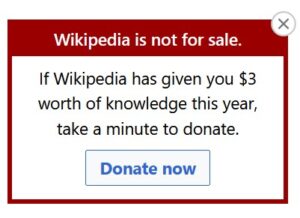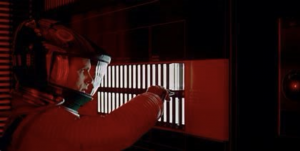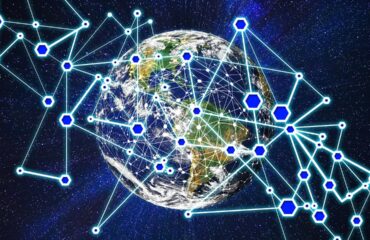
Wikipedia temporary outage notices seem to have been on the increase, recently.
By James Myers
I am becoming a bit alarmed to see, in recent weeks, temporary outages in Wikipedia. It’s a service I have come to rely on for knowledge, and because of the wealth of human knowledge that Wikipedia freely offers, I wouldn’t want to imagine these temporary outages becoming permanent.
A huge proportion of human data in this world is stored and indexed by powerful AIs operated by companies like Google, Meta, X, Acxiom, Clearview AI, OpenAI, Microsoft, and others. The largest of these companies make a great deal of money with the data that, for the most part, humans freely and often unknowingly furnish. These companies are what we might call “commercial data processors,” because they process data to generate income – mostly from advertising products to us – either directly or by transferring our data to a third-party data processor for a fee.
But there’s a different kind of processor and indexer of human data. It’s one that I frequently use, and I support it with a $10 monthly donation. Like many other donors to Wikipedia, I value the helpfulness and immense educational potential of its human-curated knowledge, and so I volunteer my funds to keep alive its mission to provide free knowledge.
I have profited from Wikipedia, not in anything as temporary as money (I haven’t earned a cent from it), but from the knowledge I have gained.
As I spent years teaching myself what I could of physics, geometry, mathematics, and some of the other sciences, Wikipedia would often be the first stop on my journey for knowledge. It’s not that Wikipedia is the final authority on knowledge – almost always it’s not – but it provides me with a roadmap. I don’t look only at Wikipedia’s articles but often at their footnotes as well, to understand how the information was constructed and what other resources I can consult in unfamiliar territory.
 When I volunteered to edit an article on Wikipedia for the first time, about a new science facility called the European Spallation Source, I realized the incredible value of human-curated data is in its capacity for relevance. I spent quite a while editing the first half-dozen introductory paragraphs, because I wanted them to be both understandable by and engaging to the average reader who, like me, lacks advanced science education.
When I volunteered to edit an article on Wikipedia for the first time, about a new science facility called the European Spallation Source, I realized the incredible value of human-curated data is in its capacity for relevance. I spent quite a while editing the first half-dozen introductory paragraphs, because I wanted them to be both understandable by and engaging to the average reader who, like me, lacks advanced science education.
(If, by the way, a fellow human would please edit Wikipedia’s article on the Dirac Equation, to add at least a summary that’s understandable to an ordinary mortal like me without a science PhD, I would be truly grateful because I’m in the middle of reading an amazing book on Dirac’s work and life).
My ability to shape the bits of data that I did, I hope in a humanly meaningful way, made me realize how the human mind is fundamentally creative. The immense creative power in our heads is the diametric opposite of a computer’s algorithm, which is fundamentally inert and barren.
It’s by reason of the creative human mind that the algorithm exists in the first place, and everything else that went into making it and transforming the planet with our cities and inventions since the beginning of humanity.
What emerged from my editing is, I hope, something a human would appreciate learning from as much as I did. Unlike machines, which gobble all the data we choose to feed them, human learning involves an emotional attachment to the data – and as it turns out, that’s a far greater attachment over the course of history. Unlike machines, humans enjoy exchanging information and learning from each other how to do things (like creating machines) and otherwise to improve our lives. To us, knowledge is the ultimate reward, which sustains our sometimes-fragile lives and advances us in time.
But what we perceive as a reward, an AI might calculate as a threat to its continuing operation.
While the defiant HAL9000 computer in Arthur C. Clarke’s fictional 2001: A Space Odyssey might have seemed far-fetched when Stanley Kubrick’s film version was released in 1968, 55 years later with the prevalence of machine learning and ChatGPT, it’s easier to imagine a powerful computer acting against humans who threaten its programmed mission.

Human astronaut Dave disconnects HAL 9000’s memory banks, in 2001: A Space Odyssey.
With the profits they make, it doesn’t seem likely that the commercial data processors will cut us off from their streams of data on which most of the planet has come to rely. But what could end is the data stream that Wikipedia provides, because it has no source of revenue other than us human users. For Wikipedia, advertising is not an option and the choice is stark: raise voluntary contributions or go bust.
A fundamental question with data is how its long-term value is determined. Is the trading value in today’s data brokering market an indicator that it will remain so, or could the data eventually become stale and repetitive, and its value crushed by predictability? Increasing competition, public scrutiny, and regulations for data brokering may fundamentally alter values in unpredictable ways.
I’m a human who prefers to contribute to the value of technology that benefits my mission in life, and so I support technology that delivers a wealth of knowledge to me.
For others who can, I would encourage you to do so too, if you can see as much potential for Wikipedia’s knowledge to nourish current and future generations of humans as I do.



